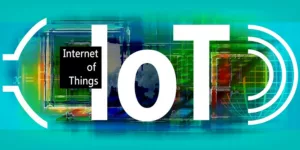The Internet of Things refers to the network between computing devices that enables them to share and exchange data. These connections are embedded with technology and provide more direct integrations into computer-based systems. The physical devices can be controlled and monitored remotely. Over the years, the number of IoT devices has been on the rise. It’s estimated that by the year 2020, there will be over 30 billion devices with a global market value of $7.1 trillion.
The connectivity of IoT raises a number of questions about data privacy. The interconnection makes security breaches inevitable. However, this issue can be addressed with proper IoT device management. You can get IoT device management services from vendors like Cloud Management Suite who’ll manage all your devices inside a network and help you adopt standard security protocols.
The Internet of Things and Business
IoT has transformed every aspect of life. The Internet of Things products give us control over systems and simplify our tasks. It’s impossible to ignore the great impact of IoT on business. If you are an entrepreneur looking to take your business to the next level, this is exactly the place you should start.
Let us look at some of the ways in which you can turn the Internet of Things into a business advantage:
- Save on costs. With the help of connected devices, you can monitor usage levels and minimize wastage.
- Keep track of your inventory. You can do this using a system of sensors that enable you to see, in real time, exactly where everything is in the supply chain at any given time.
- Offer better customer experience. Use connected devices to attract new customers, find out about customer behaviors and also reward the loyal ones.
- Run your business remotely and more efficiently. IoT collect data, analyze it for you, and give a report. So you will always know what needs raw material needs topping up and which machine part needs replacement. The best thing about this is that you can do it from wherever you are.
- Produce quality products. Connected devices are really helpful when it comes to quality control. The device will make adjustments when necessary and keep the levels at contant.
What GDPR Means for your Business
GDPR stands for “General Data Protection Regulation” and it purpose is to provide data privacy and protection for individuals within EU and EEA. It is very likely that GDPR will replace all the existing data protections laws and this will have a huge impact on SMEs.
The GDPR recognizes an individual’s right to a private life as well as their right to have their personal data safeguarded. It is important for any business that holds peoples data to gain consent from the people on whether they should keep it or not. The GDPR places rules in place on how personal data should be handled.
Noncompliance with the GDPR posses a great risk on small business. In case of a security breach, then the business will be penalized for not attempting to improve their data protection practices.
A company that does not comply with GDPR becomes prone to attacks by hackers as they are an ‘easy target.’ When the attackers steal the data, they blackmail you into paying them so that they can delete it. This has made hacking a new territory where hackers prey on victims looking to cash in on the process.








